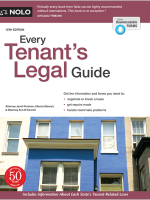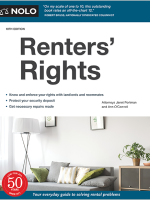Assuming that you pay your rent on time and try to live the life of a model tenant, a letter from your landlord claiming that you owe rent might be alarming to you. Even more alarming might be the fact you cannot find a rent receipt for the month your landlord claims was not paid. Disputes over rent payments can end up in court as your landlord attempts to evict you.
Courtrooms are anxiety producing places that most people would like to avoid. Unfortunately, a dispute with your landlord over the payment of rent is one of those situations in which going to court might be unavoidable. One of the reasons for the stress and anxiety people experience is their lack of understanding of the process and procedures associated with a civil case.
Relying on an impartial judge to settle conflicts
A court is someplace where people can bring disputes and conflicts to be settled by an impartial judge. Judges have the authority make binding and legally enforceable orders after reviewing the testimony, documents and other evidence presented by each of the parties. The fact that judges usually know nothing about the parties or their dispute other than what is written in the papers filed to get the case into court means that the evidence presented by each side in the dispute is essential.
The burden of proof
The party initiating the court proceedings, frequently referred to as either the plaintiff or the petitioner, has the burden of proving the facts in dispute. The landlord suing a tenant for nonpayment of rent would have the burden of proving each of the following elements of the case through the use of a combination of witnesses and documentary evidence:
The existence of a written or oral lease
The occupancy of the leased premises by the tenant
The amount of the agreed upon rent
The failure of the tenant to pay the rent
Proving that the tenant did not pay the rent can be accomplished merely through the testimony of the landlord stating that the rent was not paid. Once the landlord claims nonpayment, the burden of proof shifts to the tenant.
Burden of proving payment
Whether a case is based upon the failure of a tenant to pay rent or the default by a debtor in paying money owed under the terms of a promissory note, the burden is on the person claiming payment was made to present evidence to prove it. A rent receipt or a cancelled check would be the easiest way for a tenant to prove that rent was paid.
The importance of getting a rent receipt
A rent receipt help you to avoid going to court over a rent dispute. You should demand a written receipt whenever making a payment in cash for rent or for any debt or obligation. Some states have enacted laws placing the burden on landlords to give written receipts for cash payments or risk not be allowing to use the courts to collect unpaid rent.

